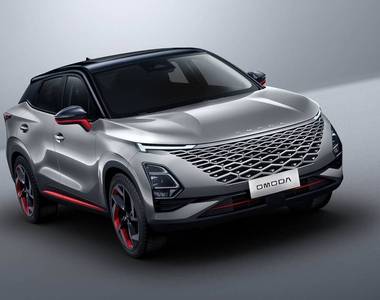The move will see construction of the EV taking place in the company’s state-of-the-art Plant Oxford automated assembly lines, and it’s hoped production of the new Mini will secure the 3,000+ jobs at the facility.
Company plans
Early in 2019, a BMW board member went on record to say that the company may have to consider moving car production out of the UK if the country left the EU with no deal in place.
Despite this, David George – head of Mini UK, told the BBC that UK production was firmly in the organisation’s plans moving forward.
In an interview with the BBC, George commented that it was “too early to say what the impact of Brexit will be," further expanding that “we have committed and invested heavily over recent years in our production facilities in the UK, so we remain committed to UK production.
"The team here at Plant Oxford are incredibly proud that it's been chosen to be the plant to launch the first all-electric Mini."
When pressed as to whether the company’s opinion would be the same in 10 years, George was unable to commit, explaining that "It is impossible to see that far ahead.
"However, the UK is an important part of our capacity requirements for the future."
Iconic brand
The board at Mini are undoubtedly hoping that the brand’s fairly unique approach to electric vehicle design will see the electric Mini establish itself as a firm favourite in the EV class.
At a glance, the electric Mini looks virtually identical to the Mini Cooper S. The electric badge, blanked grille, and lack of exhaust give it away – but Mini is well aware that they’re onto a good thing with the iconic shape of the car. With government plans to continue edging forward the ban on the sale of petrol, diesel, and hybrid cars – the market is opening up, and there’s plenty of room of a familiar face.
Currently, there are 200,000 EVs on UK roads – but plans for net-zero emissions before 2050 mean that this figure is widely anticipated to become over 35 million in the next 30 years. If Mini could convert their share of the traditionally fuelled market to EVs, that would mean a production requirement of over 1 million vehicles in coming years.
Construction hub
The Plant Oxford facility is actually the construction hub for many Minis – generally using parts sourced from elsewhere in the EU and the British Isles. For the electric Mini, this will mean deliveries of body panels from Swindon – with the new electric drivetrain coming from its own production plant in Dingolfing, Bavaria.
The plant has an incredible motoring heritage, producing Morris vehicles between 1913 and 1982 – before moving on to Austins, Rovers, Hondas and Triumphs thereafter.
The facility began focusing solely on Minis when production of the Rover 75 came to an end in 2000, prompting the sale of the factory to a new owner. Now, the expansive venue has an automated assembly line of over 1000 robots that produce a new Mini every minute that they’re in operation.
Additional capacity
With promising sales projections, the new electric Mini looks sure to be a hit with consumers – but quite how much of the anticipated production requirement will be fulfilled by the Oxford facility remains to be seen.
The German brand has launched a joint construction venture with Chinese Firm Great Wall – and plan to open a £555 million Mini production facility in Zhangjiagang, Jiangsu province, in 2022.
The company remain committed to Oxford for now – and company spokespeople underline the firm’s Chinese plans as being a vital part of establishing itself as a major player in the Chinese market.











